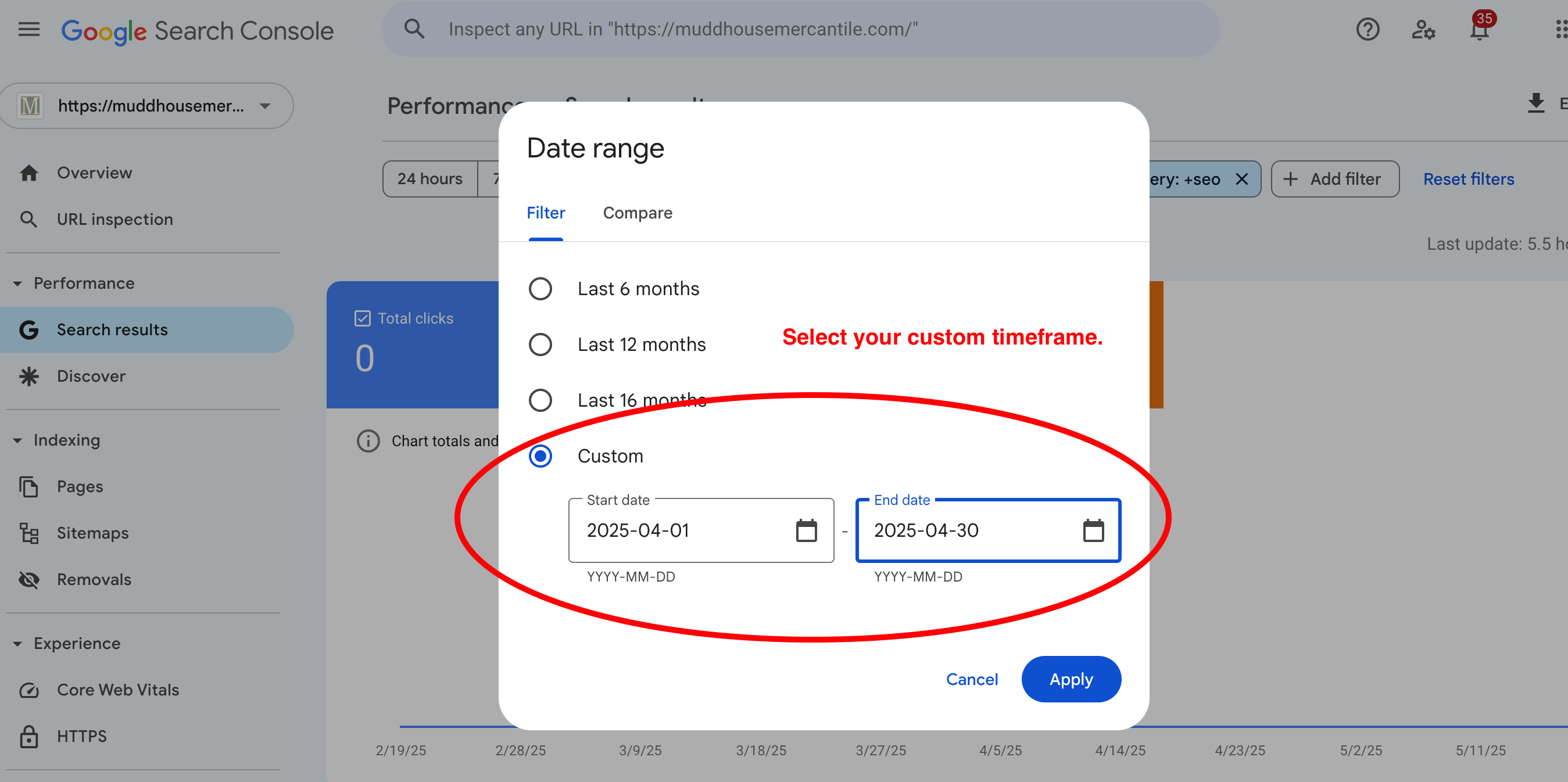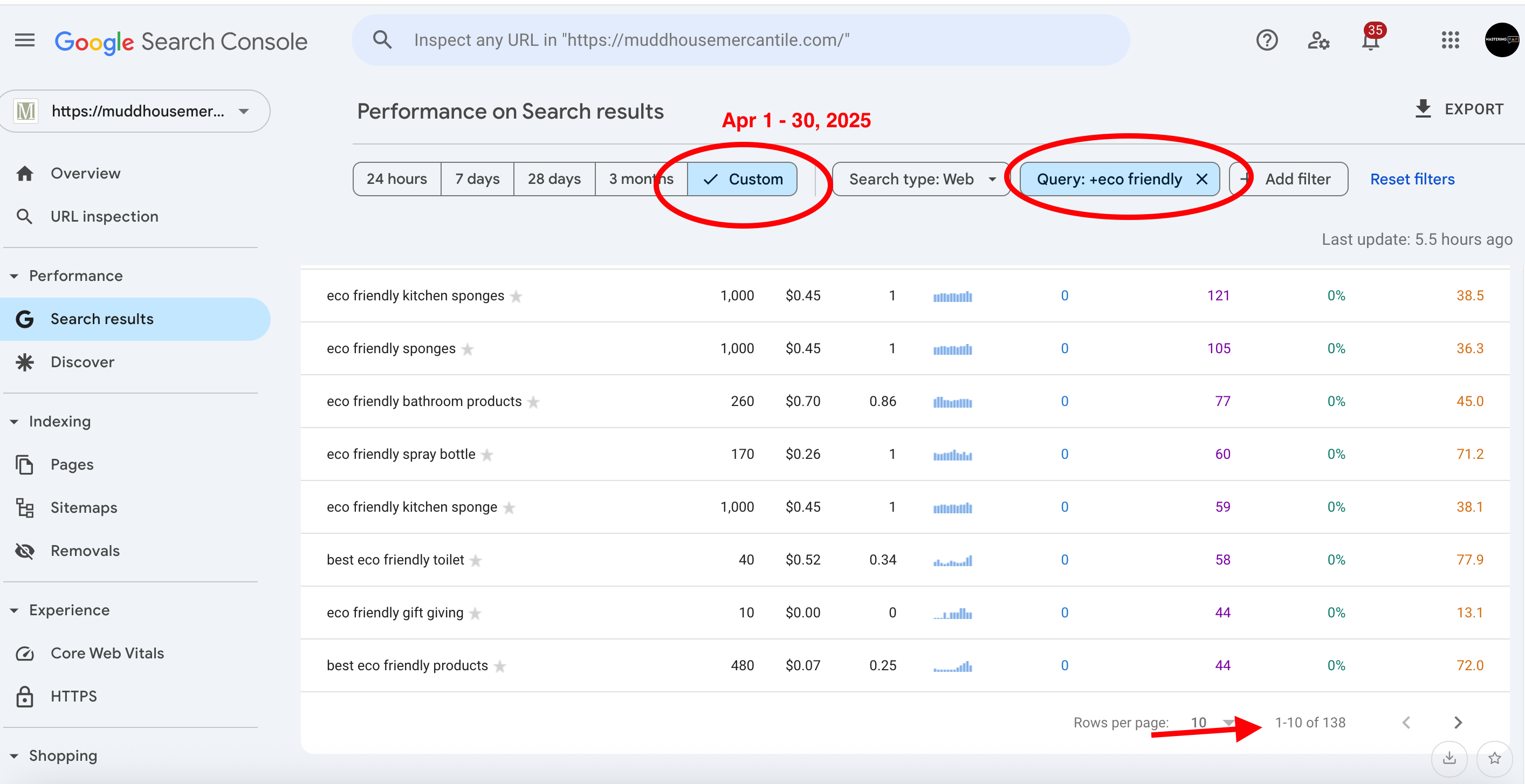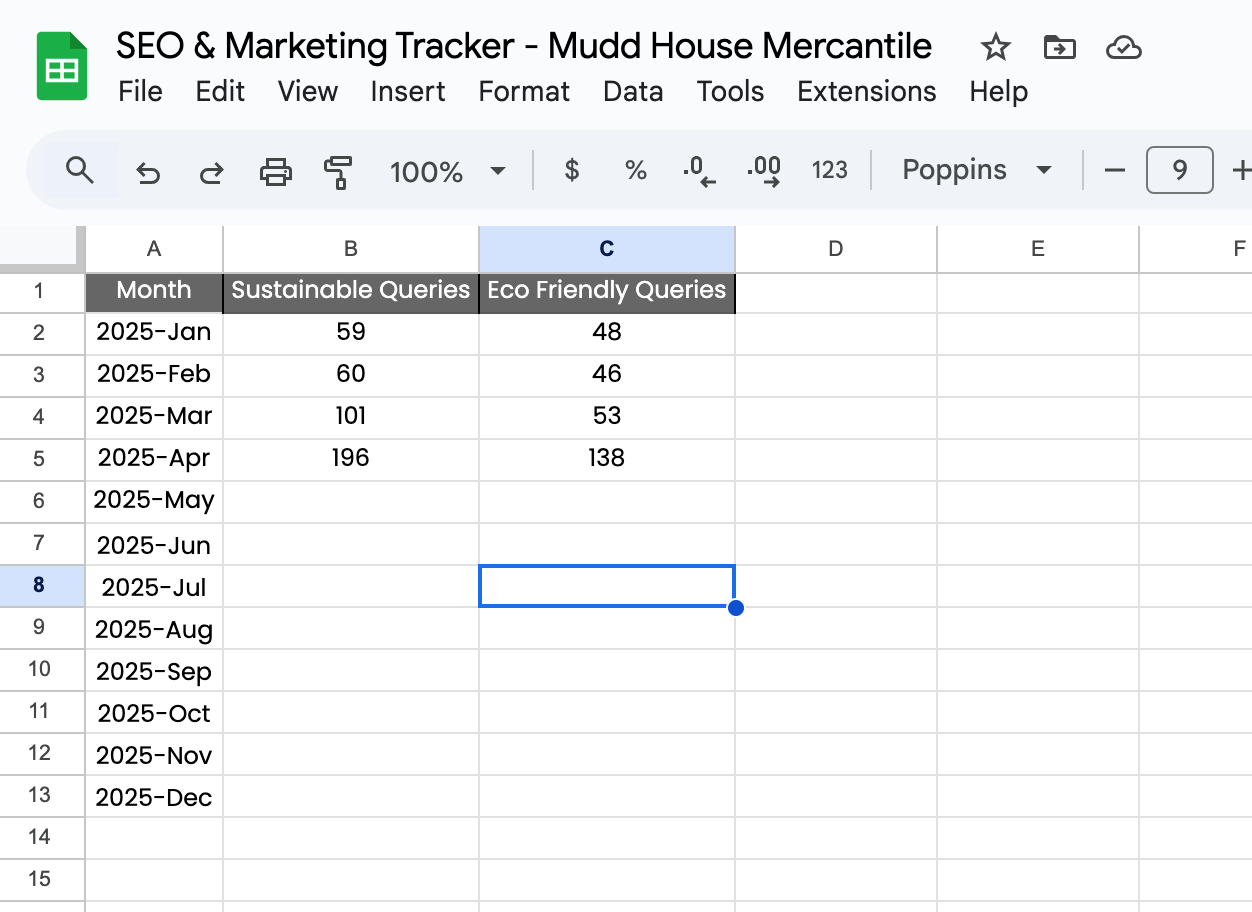If you’re part of the Mastering P.o.P. membership, you get access to the paid SEO tool including weekly keyword reports and performance insights from Google Search Console (GSC) and GA4.
However, each member is tracking 100 keywords, because yes, there is a cap. Obviously, it's still a valuable perk considering the cost of different tools out there (e.g. Ahref, SEMrush, etc.) But it also means you need to be selective, and strategic, with the keywords you choose.
So the real question is:
What Are You Doing With the Rest of Your Search Visibility?
Let’s look at an example.
Katie from Mudd House Mercantile runs a sustainable online store. She wants to dominate in sustainable and eco friendly keyword spaces, but she's working with the same 100-keyword limit as everyone else.
Here’s how she’s choosing what to track:
- High-volume keywords her competitors rank for
- Supplier brand names (like Zero Waste Club) which she ranks on the 1st page of Google for
- Product-specific keywords that match her product catalog
Smart SEO. Focused. Intentional.
But that still leaves a big part of her search footprint unmonitored.
Use Google Search Console to Track Keyword Category Growth
Here’s a free and scalable way to go further, without paying for more tracking slots.
You can use Google Search Console to track how your site is growing for broad keyword categories, even if you're not tracking them individually using a paid tool.
Here's how it works using Mudd House Mercantile as an example:
- Go to Google Search Console > Performance
- Filter Queries:
- "sustain" (this catches sustainable, sustainability, etc.)
- "eco friendly"
- Count the total number of queries that show up for each filter
- Log these totals in a Google Sheet every month


You're not tracking specific rankings, you're measuring category visibility.
If you had 101 “sustain” queries in March and 196 in April, that’s growth.
If people clicked or not, it means more of your content is showing up for relevant searches.
Want to Make It Easier?
Install the free Search Analytics for Sheets Google Sheets extension.
It automatically pulls your query data from GSC into a spreadsheet, no manual counting needed.
Even If You’re Getting Weekly Keyword Ranking Reports
You’re getting weekly SEO reports through Mastering P.o.P., but those reports are based on just 100 keywords.
Here’s what this GSC method adds:
- More complete visibility into your keyword performance
- Uncovers long-tail search wins you’re not paying to track
- Shows growth even before traffic or conversions pick up
- Takes 5 minutes a month once set up
- Most people aren’t doing it (which means you gain an edge)
Ask Yourself:
- What niche or industry do you want to own online?
- Are you showing up for more queries each month?
- Are you even tracking it?
This system gives you an honest way to measure progress—even before clicks or sales show up.
Real Example: Katie’s Query Growth
In the screenshot below, you’ll see Katie’s growth for both “sustain” and “eco-friendly” keyword queries.
There’s also a filtered view for “eco friendly” with a custom date range of April 1–30, 2025, showing 138 unique queries in that month alone.
This isn’t theoretical—it’s real data showing real growth.

Affordable SEO isn’t about tools, it’s about how you use them.
While courses like the Coursera SEO course give you surface-level training, they don’t walk you through real-world tracking systems like this one.
- This is SEO for entrepreneurs.
- For small business owners.
- For people who want to grow visibility without wasting budget.
One last question...
Are you even tracking your keywords? Because if you’re not, you’re already behind. Visibility doesn’t grow by accident.
How We Work
In case you didn’t know, P.o.P in Mastering P.o.P stands for Profitability Over Popularity. Because we believe success isn’t about chasing trends—it’s about building a business that actually works—and generates real money, consistently.
In Mastering P.o.P’s membership, each member has a customized SEO strategy that they are actively executing. For any online business owner with a website, having a clear SEO strategy is important—it helps attract the right audience, rank well in search results, and drive traffic to the site. As part of this strategy, we track 100 keywords for each member. These keywords are carefully selected based on competitors performing well with them, alignment with our product offerings, and the expected traffic they can generate.
Members regularly receive tips like these within the community and during weekly Zoom calls, which are recorded, timestamped, and organized with agendas to make the guidance clear and actionable. Learn How We Work

